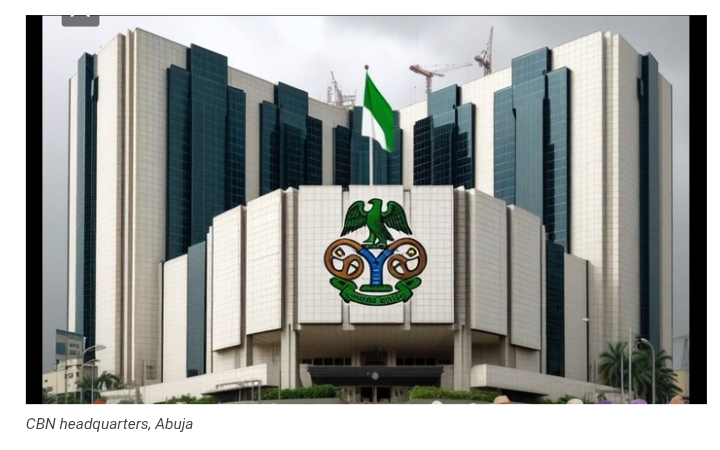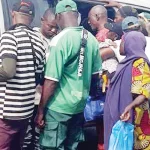Feature/OPED
Not Crowd But Decision To Vote Wisely

By Jerome-Mario Mario Utomi
As the nation Nigeria braces for the forthcoming February 25 and March 11 general elections, each time I look at the sea of heads that flood every political campaign and rallies put together by public office seekers at both state and federal levels, it reminds me of an event that happened back in the days. Though used in part a while ago in a similar intervention, I, however, believe that such an account has become even more relevant in the present threshold of our nation.
The referenced event was recorded one Sunday morning during the celebration of the holy mass in one of the Catholic churches in Delta State (please don’t ask me about the town).
For a better understanding of the piece, Holy Mass is the Catholic order of worship. One of the major high points of the mass is called the prayer of the faithful. This is when carefully and well-rehearsed lay faithful, usually about five in number, are invited before the altar to pray for different intentions on behalf of the entire people attending worship.
On this particular day, a man, who we later discovered to be a non-Catholic, emerged from the rest of us. He was neither selected nor part of those that rehearsed for the above function but, without recourse, made his way to the altar with a supersonic speed and assumed the first position.
Though strange as it were, the churchwarden was left with no other option than to allow him in order not to create a scene and just very slowly, the altar boy handed over the microphone to him for ‘his’ prayer of the faithful. And the man prayed, ‘father in heaven, in my effort to solve my legion of problems, I have but against my will visited “Babalawo, Dibia, as well as Ifa priests, all to no avail and I have decided to come back to you’. The rest of that episode, called prayer of the faithful, could best be imagined than seen as the entire congregation burst into uncontrolled laughter.
Even though the above took place some decades ago, it instructively represents what is playing out in today’s political topography called Nigeria. While the man in the church represents you and me, the church or the town represents our nation Nigeria.
Also, while the man was forced into visiting the places, he mentioned above by circumstance, the same way we as a people were forced into a cosmetic marriage called amalgamation in 1914 by our then colonial imperialists. And right from that moment, things have never been the same as the centre cannot hold.
But unlike the man in the church, we as a people, made up of different tribes, have for a long time bore pockets of reservations and misgivings against each other. But lacking in courage to voice out or express it, as demonstrated by this man.
These ‘national’ misgivings against one another had lingered since the nation’s independence in October 1960 and have been with us until recently when people started breaking their long-enjoyed silence. From all indications, that pregnancy we have been carrying as a nation has completed its gestation, hence, the rumbles occasioned by ‘labour’.
Regrettably, as it is interesting, the above situation calls for candid self-introspection and interrogation to summon the moral authority and legitimacy to challenge and possibly correct this asymmetrical and artificial way of living as a nation.
Call it restructuring or sovereign national conference, constitutional amendment or an outright rewriting of the constitution. One thing is crystal clear and that is the fact that the foundation of our nationhood is faulty, and all the amalgams have very visibly advertised their mutual suspicion or outright grudge against the other.
Laughable as it appears, the man in the church represents us in all areas but one, and that is our not being courageous. It is also instructive at this juncture for us to remind ourselves that ‘courage faces fear and masters it while cowardice represses fear and is thereby mastered by it.
Courageous men never lose their zest for living even though their life situation is restless, but cowardly men, overwhelmed by the uncertainties of life, lose the will to live.
I hope and pray that the man from the sleepy town will not be laughing at us just the way we did to him the day he demonstrated the man in him and declared his willingness to exit “the Paris Club of Bondage.”
Some of the reader’s minds will gravitate towards prayer, either seven days or one-month fasting and prayer just because I painted a picture of a challenge or problem. Let the truth be told, the problem bedevilling our nation calls for more action garnished with courage than prayer.
It calls for the speaking of undiluted truth, and it calls for a disciplined shift of mentality from feeling optimistic to becoming self-confident. Their difference could be spotted in their modus operandi as well as their end result. In optimism, we hope for the best but lack the courage to fight on, while in self-confidence, one prepares for the worst but summons that unalloyed willingness to fight.
This is the missing link. We have deliberately allowed the leadership value-addition role to elude us by failing to hold our leaders accountable, even in the face of misrule.
We punctuate their incivility and actions with our local palace ‘e go beta’ we forget completely as a people that ‘development is stimulated by asking why and how’. Truly, we have, through our actions and inactions, authenticated the saying that ‘the problem with us is that we are the problem.’
We are well aware of the counterpart relationship that exists between our leaders and us but has lost the moral force to implement it. Even as they are regrouping for the 2023 electioneering onslaught, we are feeling unconcerned. We have proved without measure that we lack strategy, and as a result, we are neither forward-looking nor able to figure out what comes next. This, I must say, is pathetic.
The ‘man in the church’ summoned the courage to confess his past escapades, we as a people should equally and very urgently summon the moral and political will to demand good and result-oriented governance.
Let’s make no mistake about it, this journey demands a struggle, a conscientious industry for us to achieve this anticipated good governance and symmetrical coexistence from our leaders. But the good news is that we can.
Yes, that is the interesting part of this conversation. It is my conviction that we have the capacity to enthrone a nation where we can coexist harmoniously, irrespective of tribal inclinations. I am full of hope that together, we can establish the egalitarian society that we have been deprived of.
But for us to achieve this as a nation, we must team up and fight our common enemy called bad leadership and its proponent. Let us also fight the deconstructionists masquerading as leaders by making sure that come 2023, we shall collectively reject the mentality of instant gratification by rejecting all the alluring inducements of our undemocratic and selfish politicians and go ahead to electing credible people as our leaders.
Let us, like ‘the man in the church,’ realize that waiting to be recognized by our leaders will translate to waiting till eternity. It is my opinion that we draw and apply the lessons learnt from ‘the man in the church’. Let his courage spur us to action so that we shall file out not for ‘prayer of the faithful’ but to ask our leaders questions and drive our corrupt leaders away from our political geography using legitimate and democratic means.
Achieving the above objective will not be anchored on gathering at campaign rallies, but it would require citizens to vote wisely in the forthcoming general election in the country.
Thus, as we work tirelessly, and hope faithfully for a great nation where peace, unity and justice shall reign, let us not just pray like ‘the man above’ but rather let us look up to God our maker and talk to him through our positive actions and join our faith with that of James Weldon Johnson, to say ‘Oh God of our weary years, God of our silent tears, Thou hast brought us far on the way; Thou who by the might lead us into the light.
Keep us forever, in part, we pray. Lest our feet stray away from places, our God where we meet thee, lest our heart is drunk with the wine of the world, and we forget thee; Shadowed beneath thy hand, may we forever stand true to our God, true to our native land’.
To this, I say a very big amen.
God bless Nigeria!!
Jerome-Mario Utomi is the Programme Coordinator (Media and Policy) at Social and Economic Justice Advocacy (SEJA), Lagos. He can be reached via je*********@***oo.com/08032725374
Feature/OPED
Brent’s Jump Collides with CBN Easing, Exposes Policy-lag Arbitrage

Nigeria is entering a timing-sensitive macro set-up as the oil complex reprices disruption risk and the US dollar firms. Brent moved violently this week, settling at $77.74 on 02 March, up 6.68% on the day, after trading as high as $82.37 before settling around $78.07 on 3 March. For Nigeria, the immediate hook is the overlap with domestic policy: the Central Bank of Nigeria (CBN) has just cut its Monetary Policy Rate (MPR) by 50 basis points to 26.50%, whilst headline inflation is still 15.10% year on year in January.
“Investors often talk about Nigeria as an oil story, but the market response is frequently a timing story,” said David Barrett, Chief Executive Officer, EBC Financial Group (UK) Ltd. “When the pass-through clock runs ahead of the policy clock, inflation risk, and United States Dollar (USD) demand can show up before any oil benefit is felt in day-to-day liquidity.”
Policy and Pricing Regime Shift: One Shock, Different Clocks
EBC Financial Group (“EBC”) frames Nigeria’s current set-up as “policy-lag arbitrage”: the same external energy shock can hit domestic costs, FX liquidity, and monetary transmission on different timelines. A risk premium that begins in crude can quickly show up in delivered costs through freight and insurance, and EBC notes that downstream pressure has been visible in refined markets, with jet fuel and diesel cash premiums hitting multi-year highs.
Market Impact: Oil Support is Conditional, Pass-through is Not
EBC points out that higher crude is not automatically supportive of the naira in the short run because “oil buffer” depends on how quickly external receipts translate into market-clearing USD liquidity. Recent price action illustrates the sensitivity: the naira was quoted at 1,344 per dollar on the official market on 19 February, compared with 1,357 a week earlier, whilst street trading was cited around 1,385.
At the same time, Nigeria’s inflation channel can move quickly even during disinflation: headline inflation eased to 15.10% in January from 15.15% in December, and food inflation slowed to 8.89% from 10.84%, but energy-led transport and logistics costs can reintroduce pressure if the risk premium persists. EBC also points to a broader Nigeria-specific reality: the economy grew 4.07% year on year in 4Q25, with the oil sector expanding 6.79% and non-oil 3.99%, whilst average daily oil production slipped to 1.58 million bpd from 1.64 million bpd in 3Q25. That mix supports external-balance potential, but it also underscores why the domestic liquidity benefit can arrive with a lag.
Nigeria’s Buffer Looks Stronger, but It Does Not Eliminate Sequencing Risk
EBC sees that near-term external resilience is improving. The CBN Governor said gross external reserves rose to USD 50.45 billion as of 16 February 2026, equivalent to 9.68 months of import cover for goods and services. Even so, EBC views the market’s focus as pragmatic: in a risk-off tape, investors tend to price the order of transmission, not the eventual balance-of-payments benefit.
In the near term, EBC expects attention to rotate to scheduled energy and policy signposts that can confirm whether the current repricing is a short, violent adjustment or a more durable regime shift, including the U.S. Energy Information Administration (EIA) Short-Term Energy Outlook (10 March 2026), OPEC’s Monthly Oil Market Report (11 March 2026), and the U.S. Federal Reserve meeting (17 to 18 March 2026). On the domestic calendar, the CBN’s published schedule points to the next Monetary Policy Committee meeting on 19 to 20 May 2026.
Risk Frame: The Market Prices the Lag, Not the Headline
EBC cautions that outcomes are asymmetric. A rapid de-escalation could compress the crude risk premium quickly, but once freight, insurance, and hedging behaviour adjust, second-round effects can linger through inflation uncertainty and a more persistent USD bid.
“Oil can act as a shock absorber for Nigeria, but only when the liquidity channel is working,” Barrett added. “If USD conditions tighten first and domestic pass-through accelerates, the market prices the lag, not the headline oil price.”
Brent remains an anchor instrument for tracking this timing risk because it links energy-led inflation expectations, USD liquidity, and emerging-market risk appetite in one market. EBC Commodities offering provides access to Brent Crude Spot (XBRUSD) via its trading platform for following energy-driven macro volatility through a single instrument.
Feature/OPED
Gen Alpha: Africa’s Digital Architects, Not Your Target Audience

By Emma Kendrick Cox
This year, the eldest Gen Alpha turns 16.
That means they aren’t just the future of our work anymore. They are officially calling for a seat at the table, and they’ve brought their own chairs. And if you’re still calling this generation born between 2010 and 2025 the iPad generation, then I hate to break it to you, but you’re already obsolete. To the uninitiated, they look like a screen-addicted mystery. To those of us paying attention, they are the most sophisticated, commercially potent, and culturally fluent architects Africa has ever seen.
Why? Because Alphas were not born alongside the internet. They were born inside it. And by 2030, Africa will be home to one in every three Gen Alphas on the planet.
QWERTY the Dinosaur
We are witnessing the rise of a generation that writes via Siri and speech-to-text before they can even hold a pencil. With 63% of these kids navigating smartphones by age five, they don’t see a QWERTY keyboard as a tool. They see it as a speed bump, the long route, an inefficient use of their bandwidth. They don’t need to learn how to use tech because they were born with the ability to command their entire environment with a voice note or a swipe.
They are platform agnostic by instinct. They don’t see boundaries between devices. They’ll migrate from an Android phone to a Smart TV to an iPhone without breaking their stride. To them, the hardware is invisible…it’s the experience that matters.
They recognise brand identities long before they know the alphabet. I share a home with a peak Gen Alpha, age six and a half (don’t I dare forget that half). When she hears the ding-ding-ding-ding-ding of South Africa’s largest bank, Capitec’s POS machine, she calls it out instantly: “Mum! Someone just paid with Capitec!” It suddenly gives a whole new meaning to the theory of brand recall, in a case like this, extending it into a mental map of the financial world drawn long before Grade 2.
And it ultimately lands on this: This generation doesn’t want to just view your brand from behind a glass screen. They want to touch it, hear it, inhabit it, and remix it. If they can’t live inside your world, you’re literally just static.
The Uno Reverse card
Unlike any generation we’ve seen to date, households from Lagos to Joburg and beyond now see Alphas hold the ultimate Uno Reverse card on purchasing power. With 80% of parents admitting their kids dictate what the family buys, these Alphas are the unofficial CTOs and Procurement Officers of the home:
-
The hardware veto: Parents pay the bill, but Alphas pick the ISP based on Roblox latency and YouTube 4K buffers.
-
The Urban/Rural bridge: In the cities, they’re barking orders at Alexa. In rural areas, they are the ones translating tech for their families and narrowing the digital divide from the inside out.
-
The death of passive: I’ll fall on my sword when I say that with this generation, the word consumer is dead. It implies they just sit there and take what you give them, when, on the contrary, it is the total opposite. Alphas are Architectural. They are not going to buy your product unless they can co-author the experience from end to end.
As this generation creeps closer and closer to our bullseye, the team here at Irvine Partners has stopped looking at Gen Alpha as a demographic and started seeing them as the new infrastructure of the African market. They are mega-precise, fast, and surgically informed.
Believe me when I say they’ve already moved into your industry and started knocking down the walls. The only question is: are you building something they actually want to live in, or are you just a FaceTime call they are about to decline?
Pay attention. Big moves are coming. The architects are here.
Emma Kendrick Cox is an Executive Creative Director at Irvine Partners
Feature/OPED
Why Digital Trust Matters: Secure, Responsible AI for African SMEs?

By Kehinde Ogundare
For years, security for SMEs across sub-Saharan Africa meant metal grilles and alarm systems. Today, the most significant risks are invisible and growing faster than most businesses realise.
Artificial Intelligence has quietly embedded itself into everyday operations. The chatbot responding to customers at midnight, the system forecasting inventory requirements, and the software identifying unusual transactions are no longer experimental technologies. They are becoming standard features of modern business tools.
Last month’s observance of Safer Internet Day on February 10, themed ‘Smart tech, safe choices’, marked a pivotal moment. As AI adoption accelerates, the conversation must shift from whether businesses should use AI to how they deploy it responsibly. For SMEs across Africa, digital trust is no longer a technical consideration. It is a strategic business imperative.
The evolving threat landscape
Cybersecurity threats facing sub-Saharan African SMEs have moved well beyond basic phishing emails. Globally, cybercrime costs are projected to reach $10.5 trillion this year, fuelled by generative AI and increasingly sophisticated social engineering techniques. Ransomware attacks now paralyse entire operations, while other threats quietly extract sensitive customer data over extended periods.
The regional impact is equally significant. More than 70% of South African SMEs report experiencing at least one attempted cyberattack, and Nigeria faces an average of 3,759 cyberattacks per week on its businesses. Kenya recorded 2.54 billion cyber threat incidents in the first quarter of 2025 alone, whilst Africa loses approximately 10% of its GDP to cyberattacks annually.
The hidden risk of fragmentation
A common but often overlooked vulnerability lies in digital fragmentation.
In the early stages of growth, SMEs understandably prioritise affordability and agility. Over time, this can result in a patchwork of disconnected applications, each with separate logins, security standards, and privacy policies. What begins as flexibility can involve operational complexity.
According to IBM Security’s Cost of a Data Breach Report, companies with highly fragmented security environments experienced average breach costs of $4.88 million in 2024.
Fragmented systems create blind spots; each additional data transfer between applications increases exposure. Inconsistent security protocols make governance harder to enforce. Limited visibility reduces the ability to detect anomalies early. In practical terms, complexity increases risk.
Privacy-first AI as a competitive differentiator
As AI capabilities become embedded in business software, SMEs face a choice about how they approach these powerful tools. The risks are not merely theoretical.
Consumers across Africa are becoming more aware of data rights and are willing to walk away from businesses that cannot demonstrate trustworthiness. According to KPMG’s Trust in AI report, approximately 70% of adults do not trust companies to use AI responsibly, and 81% expect misuse. Meanwhile, studies also show that 71% of consumers would stop doing business with a company that mishandles information.
Trust, once lost, is difficult to rebuild. In the digital age, a single data leak can destroy a reputation that took ten years to build. When customers share their payment details or purchase history, they extend trust. How you handle that trust, particularly when AI processes their data, determines whether they return or take their business elsewhere.
Privacy-first, responsible AI design means building intelligence into business systems with data protection, transparency and ethical use embedded from the outset. It involves collecting only necessary information, storing it securely, being transparent about how AI makes decisions, and ensuring algorithms work without compromising customer privacy. For SMEs, this might mean choosing inventory software where predictive AI runs on your own data without sending it externally, or customer service platforms that analyse patterns without exposing individual records. When AI is built responsibly into unified platforms, it becomes a competitive advantage: you gain operational efficiency whilst demonstrating that customer data is protected, not exploited.
Unified platforms and operational resilience
The solution lies in rethinking digital infrastructure. Rather than accumulating disparate tools, businesses need unified platforms that integrate core functions whilst maintaining consistent security protocols.
A unified approach means choosing cloud-based platforms where functions share common security standards, and data flows seamlessly. For a manufacturing SME, this means inventory management, order processing and financial reporting operate within a single security framework.
When everything operates cohesively, security gaps diminish, and the attack surface shrinks. And the benefits extend beyond risk reduction: employees spend less time on administrative friction, customer data stays consistent, and platforms enable secure collaboration without traditional infrastructure costs.
Safer Internet Day reminds us that the digital world requires active stewardship. For SMEs across the African continent who are navigating complex threats whilst harnessing AI’s potential, digital trust is foundational to sustainable growth. Security, privacy and responsible AI are essential characteristics of any technology infrastructure worth building upon. Businesses that embrace unified, privacy-first platforms will be more resilient against cyber threats and better positioned to earn and maintain trust. In a market where trust is currency, that advantage is everything.
Kehinde Ogundare is the Country Head for Zoho Nigeria
-

 Feature/OPED6 years ago
Feature/OPED6 years agoDavos was Different this year
-
Travel/Tourism10 years ago
Lagos Seals Western Lodge Hotel In Ikorodu
-

 Showbiz3 years ago
Showbiz3 years agoEstranged Lover Releases Videos of Empress Njamah Bathing
-

 Banking8 years ago
Banking8 years agoSort Codes of GTBank Branches in Nigeria
-

 Economy3 years ago
Economy3 years agoSubsidy Removal: CNG at N130 Per Litre Cheaper Than Petrol—IPMAN
-

 Banking3 years ago
Banking3 years agoSort Codes of UBA Branches in Nigeria
-

 Banking3 years ago
Banking3 years agoFirst Bank Announces Planned Downtime
-

 Sports3 years ago
Sports3 years agoHighest Paid Nigerian Footballer – How Much Do Nigerian Footballers Earn












